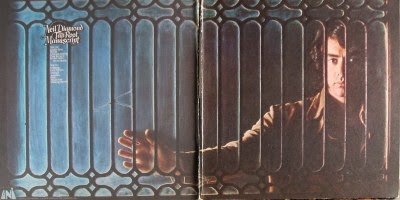The term “store-bought woman” has become a pervasive and damaging stereotype in our society. It paints a picture of women who are perceived as materialistic, superficial, and lacking genuine depth or independence. This label often carries with it a sense of judgment and dismissal, reducing complex individuals to simplistic caricatures based on their possessions and social standing.
This article aims to delve into the meaning behind this harmful stereotype, exploring its roots in societal expectations and examining its detrimental impact on women’s self-perception and overall well-being. We will also discuss strategies for challenging this label and promoting a more inclusive and empowering understanding of femininity.
Defining “Store-Bought Woman” Stereotype
The store-bought woman stereotype is a derogatory term used to describe women who are perceived as prioritizing material possessions, social status, and outward appearances over personal growth, intellectual pursuits, and genuine connections. It implies that these women have been “purchased” or molded by societal pressures and materialistic values, lacking authenticity and independence.
This stereotype often portrays store-bought women as obsessed with fashion trends, designer labels, expensive cars, and lavish lifestyles. They are depicted as seeking validation through material possessions and social approval, rather than finding fulfillment in meaningful relationships, personal achievements, or intellectual stimulation.
The term itself carries a sense of objectification, reducing women to commodities that can be bought and sold based on their appearance and status symbols. This dehumanizing language perpetuates harmful power dynamics and reinforces the notion that women’s worth is tied to their material possessions.
Materialism and Superficiality in the Phrase
The emphasis on materialism and superficiality within the store-bought woman stereotype reflects a broader societal obsession with consumerism and outward appearances. In a culture that often equates success with wealth and status, it becomes easy to fall into the trap of valuing material possessions over intrinsic qualities like kindness, empathy, and intellectual curiosity.
This materialistic lens can lead to a distorted view of happiness and fulfillment, where individuals constantly chase after the next acquisition or social milestone, never truly feeling satisfied. It also creates a culture of comparison and competition, where people are constantly measuring themselves against others based on their possessions and achievements.
Impact on Women’s Self-Perception
The store-bought woman stereotype can have a profound impact on women’s self-perception, leading to feelings of inadequacy, insecurity, and pressure to conform to unrealistic beauty standards and materialistic expectations.
Women who internalize this label may start to doubt their own worth and value, believing that they are only worthy if they possess certain material possessions or adhere to societal norms of beauty and success. This can lead to a cycle of self-criticism, anxiety, and a constant need for external validation.
Harmful Gender Stereotypes
The store-bought woman stereotype reinforces harmful gender stereotypes by associating femininity with materialism, superficiality, and a lack of intellectual depth. It perpetuates the notion that women are primarily concerned with their appearance and social status, undermining their capabilities and contributions in other areas of life.
This stereotype also limits women’s choices and opportunities, suggesting that they should prioritize marriage, motherhood, and maintaining a certain image over pursuing careers, education, or personal passions.
Challenging the Label
It is crucial to challenge the store-bought woman stereotype and promote a more inclusive and empowering understanding of femininity.
We can start by recognizing the harmful impact of this label and refusing to perpetuate it in our own language and actions. It’s important to celebrate women for their diverse talents, accomplishments, and perspectives, rather than reducing them to simplistic stereotypes based on their possessions or appearance.
Conclusion
The store-bought woman stereotype is a damaging and pervasive societal construct that needs to be challenged and dismantled. By understanding the roots of this harmful label and its impact on women’s self-perception, we can work towards creating a more equitable and inclusive society where women are valued for their individuality, intelligence, and contributions beyond material possessions. Let us strive to celebrate the diversity and complexity of womanhood, rejecting stereotypes that limit our potential and undermine our worth.



